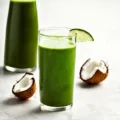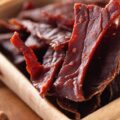Working out is crucial for our health and wellbeing. However, many of us unintentionally engage in habits after exercise that can lead to dehydration. Staying properly hydrated is key to recovering well and feeling your best.
Not Drinking Enough Water
The most obvious cause of dehydration is not drinking enough fluids. It’s recommended to drink at least 16 ounces of water for every pound lost during exercise. If you aren’t replenishing with enough water or electrolyte-containing beverages after your workout, you may feel fatigued, get headaches, or experience muscle cramps.
Consuming Too Much Caffeine
While a cup of coffee seems harmless after hitting the gym, caffeine is a diuretic that can contribute to water loss. Limit caffeine intake to under 400mg per day and be sure to balance out each cup with equal parts water.
Eating Too Much Sodium
Loading up on salty foods post-workout may unintentionally dehydrate you. High sodium intake causes the body to excrete more water. Be mindful of sodium content in sports drinks, protein shakes, and meals.
Skipping Out on Nutrient-Dense Foods
Focusing solely on protein intake after exercise can lead to suboptimal hydration. Consume plenty of fruits and veggies too, as their high water and potassium content helps you retain fluids.
Not Replenishing Electrolytes
Vigorous exercise causes electrolyte imbalance, so failing to adequately replenish sodium, potassium and magnesium stores can hinder hydration. Have a well-rounded post-workout meal and consider an electrolyte supplement if needed.
Overdoing Alcohol Intake
Alcohol acts as a diuretic, increasing water loss. It’s fine to enjoy a drink after a workout, just be sure to accompany it with a glass of water and don’t overindulge.
FAQ
How much water should you drink after a workout?
It’s recommended to consume at least 16-24 ounces of water for every pound lost during exercise. Listen to your thirst cues and rehydrate until your urine is a pale yellow color.
What foods help with hydration?
Fruits and vegetables with high water content like watermelon, oranges, cucumber, lettuce, peppers and berries help enhance hydration. Soups and smoothies also boost fluid intake.
How do you tell if you’re dehydrated?
Signs of dehydration include excessive thirst, infrequent urination, dark yellow urine, fatigue, dizziness, and muscle cramps. Pay attention to these cues after exercise and properly rehydrate.
What are electrolytes?
Electrolytes like sodium, potassium, chloride and magnesium help balance fluids levels and are depleted with vigorous activity. Consuming sports drinks, coconut water, milk, and citrus fruits help replenish electrolyte stores.
Is drinking coffee after a workout bad?
Coffee isn’t inherently bad, but it is a diuretic so can contribute to dehydration. Enjoy coffee in moderation after exercise and balance it out with plenty of water to stay properly hydrated.









